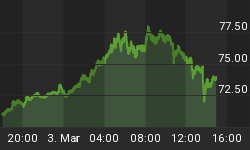In yesterday's article, I neglected to mention one remark by a former Fed chair that bothered me at the time. However, I didn't mention it because I thought the reason it bothered me was that it was vacuous - the sort of throw-away line that someone uses to stall while thinking of the real answer to the question. Since then, I've realized what specifically annoyed the subconscious me about the remark.
When Bernanke was asked about whether a recession is coming at some point; he glibly replied "Expansions don't die of old age," as if that was obvious and the questioner was being a dolt. Like so much of what Bernanke says, this statement is both true, and irrelevant.
Human beings, also, don't die of old age. There is a cause of death - something causes a person to die; it isn't that their library card of corporeality became overdue and they expired. The cause may be a heart attack, a slip-and-fall in the bathtub, cancer, pneumonia, complications from surgery, or the flu, but death is the result of a cause. It just happens that as a person gets older, the number of potential causes multiplies (a newborn rarely has a heart attack) and the number of causes that become fatal to an old person, where they would be merely inconvenient to a hale person, increases as well. As we age, parts of our bodies and immune systems weaken - and that's where death sneaks in.
Think of those weaknesses as...let's call them imbalances that have accumulated.
The statement that expansions don't die of old age is literally true. Something causes them to die. It may be monetary error, but as Volcker pointed out last night in answer to a different question, there were recessions long before there was a Federal Reserve. Expansions also can die from a diminution of credit availability, from energy price spikes, from malinvestment, from an overextension of balance sheets that leads to bankruptcies...from a myriad of things that may not kill a young, vibrant expansion.
The parallel is real, and the point is that while this expansion was never very vibrant the current imbalances are legion. The Fed may not see them, or may believe them to be small (like Bernanke's Fed felt about the housing bubble and Greenspan's Fed felt about the equity bubble). But the Fed has a fantastic record on one point: they are nearly flawless at misdiagnosing a patient who is sickening.
Administrative Note: On Friday at 4pm ET, I will be on Bloomberg TV's "What'd You Miss?" with Joe Weisenthal, Alix Steel, and Scarlet Fu.
You can follow me @inflation_guy!
Enduring Investments is a registered investment adviser that specializes in solving inflation-related problems. Fill out the contact form at http://www.EnduringInvestments.com/contact and we will send you our latest Quarterly Inflation Outlook. And if you make sure to put your physical mailing address in the "comment" section of the contact form, we will also send you a copy of Michael Ashton's book "Maestro, My Ass!"
















